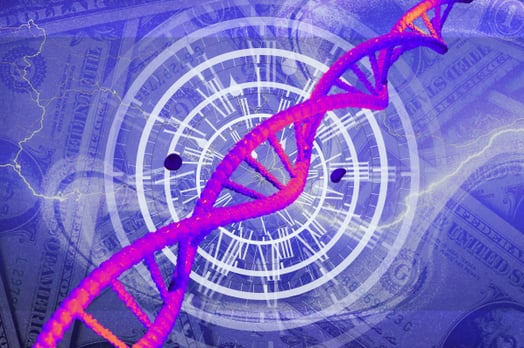People are living longer than ever before but, for some, it's still not long enough.

Those who crave immortality or as close to it as modern science will allow them to get are turning to life-extension services that promise longer, healthier lives.
The global longevity market is projected to be worth $44.2B by 2030, and $5.2B was invested in 2022 alone across 130 longevity companies (though fundraising declined from 2021).
Billionaires in particular have been early adopters of and investors in longevity startups.
Software entrepreneur Bryan Johnson made headlines over his extreme anti-aging regimen, Blueprint, used to reverse the aging process. Sam Altman, the CEO of OpenAI, invested $180m into life-extension startup Retro Biosciences.
And there are many more businesses like Blueprint and Retro Biosciences approaching longevity from all angles.
Altos Labs, arguably the biggest player in the longevity space, raised $3B in funding (allegedly in part from Jeff Bezos) to reverse disease, injury, and disabilities with cellular rejuvenation.
Alphabet-founded Calico is using technology to extend human lives, delving into both research and drug development; and Unity Biotechnology is developing a new class of drugs to slow and reverse disease and restore aging body tissue.
Where there are ventures, there are venture capitalists, and funds dedicated specifically to longevity companies are backing new innovation.
One such firm, Longevity Vision Fund, is focused on businesses that will deliver longer, healthier lives to as many people as possible.
Sergey Young, the founder of the fund and the author of The Science and Technology of Growing Young, says that technological advances like AI have positioned today's companies for success.
"We live in a unique moment of time in the evolution of humanity because finally we have something that can deal with the complexity of human biology," he says. "It's only with the arrival of artificial intelligence that we can handle that complexity and change the paradigm from fighting diseases or slowing down aging to something completely different."
Young invests in companies across the longevity sphere, with many falling into the categories of gene editing and therapies, organ generation, and AI drug discovery.
And yes, organ generation is exactly what it sounds like: Young says that human bodies of the future will act like antique cars as internal parts age and stop working, they can be replaced with new tech while maintaining the same facade. (Instead of engines, organs.)
Since aging is not considered a disease, the FDA lacks regulatory processes for approving drugs made to treat it, changing the way that researchers, entrepreneurs, and scientists approach the sector.
While we've added an additional 20 years to the global life expectancy since 1960, living a long life is not the same as living a healthy one, and the end of one's life can cause strain on both individuals and public systems when health is in decline.
There are also economic and societal costs associated with longevity.
Dr. Arthur Caplan, a professor of bioethics at New York University's School of Medicine, says that there are many societal implications to consider when weighing the pros and cons of a longer life.
To start, professions where turnover is slow could see job shortages as more people are born but fewer retire. There's also the concern that when those individuals do retire, but suddenly have many more years of life post-retirement, they can add pressure to already strained social programs like Medicare that support older individuals.
"There may be more upheaval than you might expect within the health care system. It's built on a certain premise about a life span," says Caplan. "When you go to hospice and when you go to physical therapy and when you go to rehab and when you go to a nursing home they're age linked. I could see that causing some turmoil."
And, of course, the looming ethical debate around longevity services is the issue of access. Johnson's $2m aging-reversal routine is not fit for the very wealthy, let alone the average person.
With the richest American men living 15 years longer than the poorest men in the same country, it's impossible to talk about the longevity sector without discussing the ethical concerns.
Young says he believes that these services will be somewhat mainstream, allowing those who are not billionaires to access longer lives, should they wish.
"Our mission is actually an affordable and accessible version of longevity," says Young. "We want to improve the lives of at least a billion people. And so we are not interested in developing something which would cost millions of dollars and will be available to 10 people on earth."
In the meantime, average people are becoming increasingly interested in longevity, experimenting with more accessible measures from ice baths to supplements to extend their lives.
Though research has already proven the most effective way to do so: a healthy diet and regular exercise, first and foremost.
Young imagines that future generations will live lives so long that we'll have mini-lives within them made up of 10-year increments. He believes even the concept of marriage will need to be reconsidered, as will how we raise our children.
For now, philosophical questions on the meaning of life and how it should be lived are still a ways off, but a longer life might be closer than you think.
What did you think of this article?
Startups
.jpg?width=48&height=48&name=IMG_2563%20(1).jpg)









